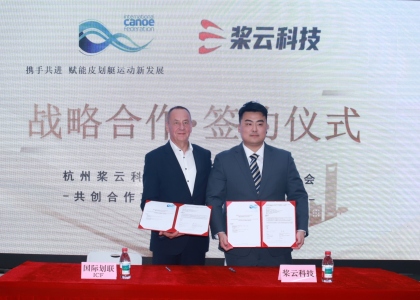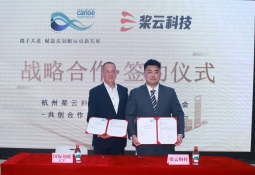Canoeing is continuing to grow around the world, but the International Canoe Federation believes it can make its development programs even more effective.
The ICF committee overseeing the programs outlined plans for the future at a board meeting in Tokyo this week.
“We have made a lot of innovations, but we still have much work to do,” ICF vice-president, Dr Cecilia Farias, said.
The ICF has been running development programs on every continent around the world, including camps in Algeria, Nepal, Thailand, Argentina and the Philippines.
It is also running programs to provide more boats to regions that are developing canoeing as a sport.
A new initiative introduced this year is to collect second-hand boats to distribute to developing countries. Project co-organiser, Thomas Konietzko, is hoping more national federations will take part.
The German and Hungarian Canoe Federations have asked other countries to bring their second-hand boats to this year’s World Cups in Szeged and Duisburg, and they will cover the costs to transport the canoes to the developing nations.
“At the moment we have 60 or 70 boats already committed from German clubs, so that is a good start,” Mr Konietzko said.
“I have spoken to several federations, including Great Britain, Russia, Poland and Hungary, and I hope they will agree to participate.
“We hope this will be an ongoing project, so we can continue to help developing countries. Germany and Hungary is supporting the project in the first year, but in the longer term we need support.”
There is also a project to help new canoeing countries build their own boats for their own domestic use.
Dr Farias said a positive outcome from the development programs has been the increase in woman applying to take part.
“We are now receiving more women applying for our development programs than men,” Dr Farias said.
“We no longer need to place great emphasis on trying to encourage women to take part.”
Dr Farias said a priority into the future would be a tightening of the criteria identifying developing countries.
“We receive applications from countries that many might consider quite wealthy, so we have to discuss whether they meet the criteria,” Dr Farias said.
“This includes requests for boats. We are not saying no, but we are saying not for free to well-developed federations.
“We need to revise and approve the list of national federations eligible for development support.”
The ICF is proposing to appoint a dedicated officer on each continent to act as the focal point for development programs, which it hopes will lead to better utilisation of developing budgets.
It should lead to a better focus on where the programs should be placed, how athletes can be targeted, and how the athletes can be kept in the sport.
“More focus should be given to retaining athletes after development camps,” Konietzko said.
“We lose a lot of these athletes after the camps. We need to have a greater focus on running ‘neighbourhood’ camps, designed to deal with athletes from their region.
“Countries that want to host these camps will need to prove they have a wide canoeing base. Participants also need to show that when they return to their countries, they will be able to continue to train.”
A development camp is being proposed for Uzbekistan, and invitations will be sent out to neighbouring countries to participate.
“This was we can spend our money in a more efficient way, and if that works, we can go to another continent next year,” Konietzko said.
The ICF is also running an education program for slalom coaches, with a goal to increase the number of coaches on every continent.




